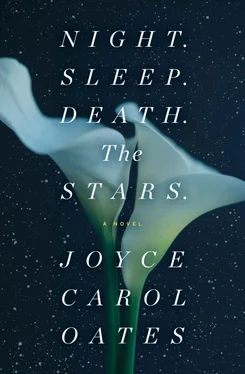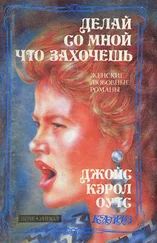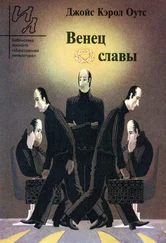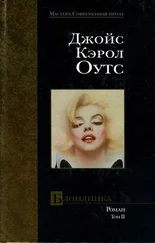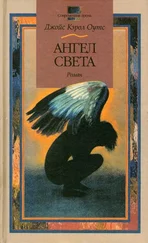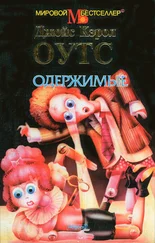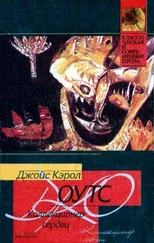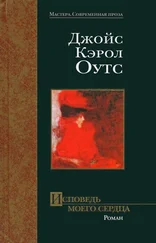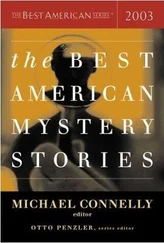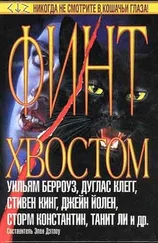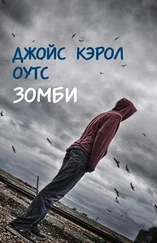Whitey had meant to be funny, Jessalyn supposed. Now, his words didn’t seem so funny.
Penguins, shorebirds, gulls. Continuous chattering, squawking. Everywhere on the rocks are glarIng-white bird droppings. And animation in the air. Swift changes of course, feathered creatures diving into the water to spear prey in their beaks. All is food hunting, food consumption. Life begetting life. It is a blunt depressing fact or (perhaps) it is a beautiful fact, to be contemplated intellectually.
Jessalyn recalls— Life is a comedy to those who think, a tragedy to those who feel. Yet in time, comedy yields to tragedy. And tragedy to forgetfulness and oblivion.
Hector is leading his group in another direction. Trying not to think about Hugo, dear Hugo who has been out of sight for at least a half hour, Jessalyn is drawn to the remarkable penguins, so seemingly tame, and blue-footed boobies feeding their noisy young, on their white-streaked boulders above the sea. And cormorants whose bodies have grown too heavy for their limbs to lift.
Beautiful birds, wind rippling their feathers. Some are asleep on one leg, the other drawn up gracefully beneath their bellies. Such peace despite the animation in the air, eyes shut.
The previous day they’d hiked on an island inhabited by sea lions and their young. Not so much like lions as walruses, though smaller than walruses, fattish, graceless, with large black eyes that seem almost human. A pack of sea lions barking, braying, moaning, groaning and grunting. And yet in the midst of these, some were sleeping. And cubs were nursing. As in the interstices of lichen-covered rocks a decaying sea-lion corpse of massive proportions overlooked the inlet of living sea lions like a not-fully-banished deity.
It was Hugo who’d made that observation— not-fully-banished deity . Squatting to take photographs of the corpse amid the rocks, in juxtaposition to sea lions sleeping, nursing, playing on the beach oblivious of the death of an elder in such proximity.
Jessalyn shrank away, repelled by the rotting stench. But for the photographer, all is material. Young life, death. Beauty, decay. Beauty in decay. Wistfully Jessalyn observed the man who is her new husband, from a little distance.
Recalling how, at the start of their knowing each other, she’d been merely a figure in a composition to him— widow.
And that figure, in that composition, Untitled: Widow which Hugo Martinez has gone on to print and reprint, to exhibit and to sell, will outlive her.
Of course, Untitled: Widow will outlive the photographer, too.
In the midst of remarks by Hector on plant communities on the island—the relationship between the sea lions and crucial vegetation—suddenly there is a rainstorm: Jessalyn and some others huddle beneath a spindly-limbed tree as the sky bursts into rain like hot spit, rapid-fire and percussive.
Fortunately, Hugo has insisted that Jessalyn wear a rain jacket on the excursions, lightweight plastic with a hood; it is not much effort for her to pull the hood over her head, and wait out the rain.
Steam rises from wet-gleaming rocks, boulders. Cries of shorebirds seem amplified. A fresh smell of bird droppings is very sharp.
Hillsides of iguanas scarcely move, glittering now in the sun as sunlight returns with an eye-aching acuity.
Somewhere not too far away, Hugo is taking photographs. And these will be (Jessalyn knows) beautiful, striking. And yet, back home, in the house on Cayuga Road, there are hundreds, thousands?—of beautiful and striking photographs by Hugo Martinez, many of which he has not yet gotten around to filing, let alone framing. In the console computer in his studio, attached to a state-of-the-art printer, are even more photographs in digital storage, not yet printed out because (as Hugo says with comic despair) he is years behind. Jessalyn has wondered if he will ever catch up?
To Jessalyn’s dismay Hector is summoning his Frigate group, to return to the dinghy and embark for another island. Like clockwork: as one dinghy arrives, another departs. Jessalyn hurries to search for Hugo whom she has not seen in—has it been an hour now? Asking people she meets on the trail if they have seen a “tall, older man with a mustache”—“carrying a camera”—trying not to show her alarm.
For Hugo will be annoyed with her, or embarrassed, if he knows that she is looking for him, and that she is worried about him.
Vaguely she is told that he is farther up the trail. Older man with a mustache, hair to his shoulders, carrying a camera?—and is he also Hispanic ?
Seeing the not-quite-disguised surprise, or suggestion of surprise, in the faces of those to whom she has appealed, that a so-very-white American woman would be in the company of a Hispanic male.
Jessalyn hurries up the trail, which is rocky, and steep. In terror of turning an ankle at such a crucial time. It is difficult to breathe in the humid over-bright air.
In Quito, the air was too thin. Here at sea level, the tropical air is too thick.
When she finds Hugo at the very top of the trail she sees that he is seated on a rock-ledge, dabbing at a bleeding knee with a wad of tissues another hiker has given him. Sighting Jessalyn he calls out smilingly to her, to assure her that he’s fine; just a little fall, no bones broken, he’s been resting before he started back down. Jessalyn feels faint at the sight of the bright blood.
The other hiker who has remained with Hugo, a younger man, offers to help Hugo to his feet but Hugo waves him away with thanks. Of course—Hugo is fine.
Jessalyn kneels before Hugo and examines his knee. He’d fallen hard, it seems: already the knee is swollen and discolored. If the kneecap is fractured or broken—! But Hugo insists that it is not, repeats that he’d just been resting, regaining his strength before starting back down.
Jessalyn sees that Hugo is quite upset. And that Hugo is determined to appear to be calm, even bemused.
To Hugo’s embarrassment the Indian guide has followed Jessalyn up the trail, and insists now upon helping Hugo to his feet. Hector is kindly and yet forceful. He tells Hugo that their dinghy must leave soon, and he, Hugo, cannot be left behind.
Hugo is apologetic, his face flushed, abashed. He has been deeply mortified. He would have liked the guide not to see him like this and he would like very much to decline Hector’s help, but he needs it; he would not be able to descend the trail unassisted. Heaving himself to his feet with a sharp intake of breath, as Hector and Jessalyn come to help him, slipping their arms around his waist. How warm Hugo is, sweating through his shirt! Normally graceful on his feet Hugo now staggers, and is uncertain. When he leans his weight on his right leg, he winces. Jessalyn bites her lower lip to keep from crying.
There is the danger, if Jessalyn begins crying over this trifle, she will not be able to stop.
From the foot of the trail the guide’s young assistant comes running, to help as well. By this time people are observing poor Hugo, making his way painstakingly downhill, leaning on Hector and Jessalyn.
The tall mustached handsome man with the camera!—in the dinghy Hugo had always seemed so much at ease, so practiced and unconcerned about buffeting waves, shark fins circling the boat.
At the dinghy Hugo is red-faced and panting but insists upon climbing in by himself. He is using his walking stick as a cane. His body trembles with the strain of keeping his body erect without putting weight on his injured knee.
Discreetly, Hector keeps away. He has seen too many affluent North American male tourists turn nasty when they have needed his assistance; better to allow them to limp leaning on their wives, who can be despised but then forgiven.
Читать дальше
